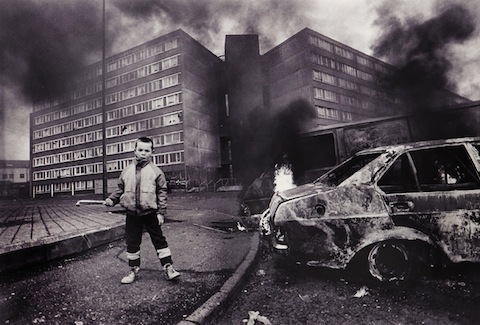A Perverse Incentive

I'm a few pages from the end of Kevin Myers' Watching the Door, the peak of which is an extended discussion of how The Troubles became economically advantageous for both sides. I particularly enjoyed this dissection of how Belfast's various paramilitary organization profited off the mayhem they created:
Glaziers—who, because they were associated with the building industry, tended to be Catholic—were in huge demand simply because of the bombings. Even a small explosion could break scores of windows; a large one simply hundreds. Bloody Friday, in all its extravagant generosity, had shattered many thousands of windows. The British government footed the bill for the damage, and there was barely any serious auditing of glazier bills. What government department counts broken windows?
Since glaziers were being made rich by the Troubles, the IRA thought it only right that it should get some of the vast amounts of government money pouring through their coffers, so it did. Glaziers paid the IRA (and in loyalist areas, by the same logic, the UVF or the UDA) protection. So, the British government was effectively subsidizing the Troubles; the more damage the terrorists did, the more money they would get‐and not just through glaziers, but through the entire building industry. As a matter of pride, the British government insisted on bombed buildings being reconstructed. Then they would be rebombed. Then rebuilt. Then rebombed…
A nice racket for the men with guns. And a good reason why they had so little incentive to negotiate an end to the violence.
(Image via Jez Coulson)




